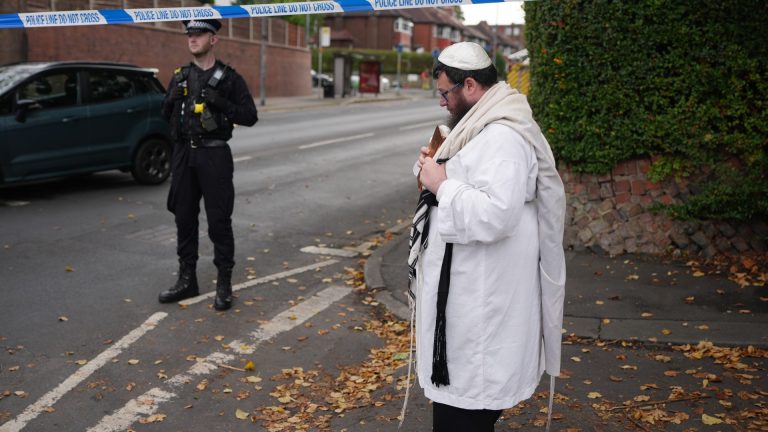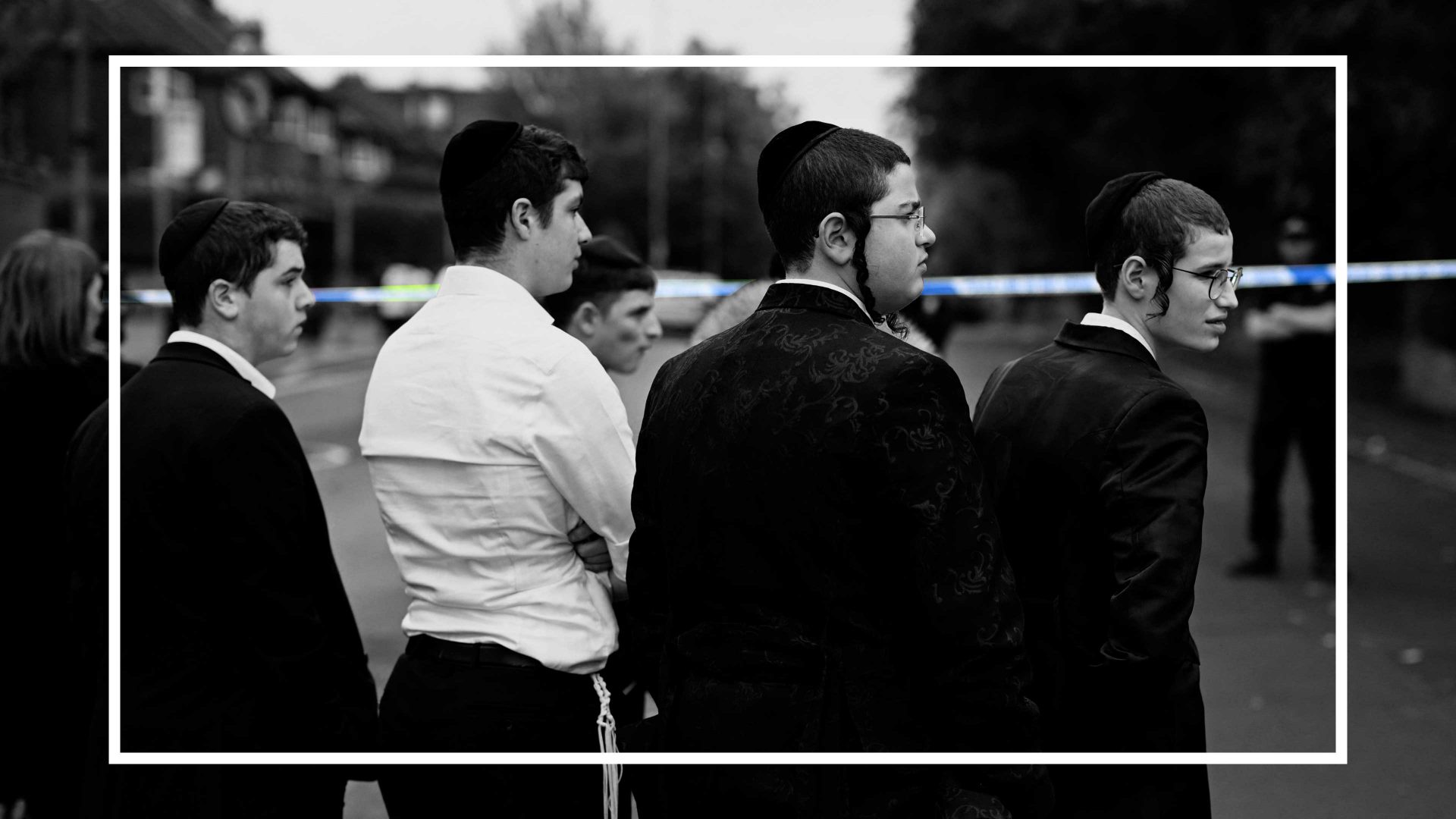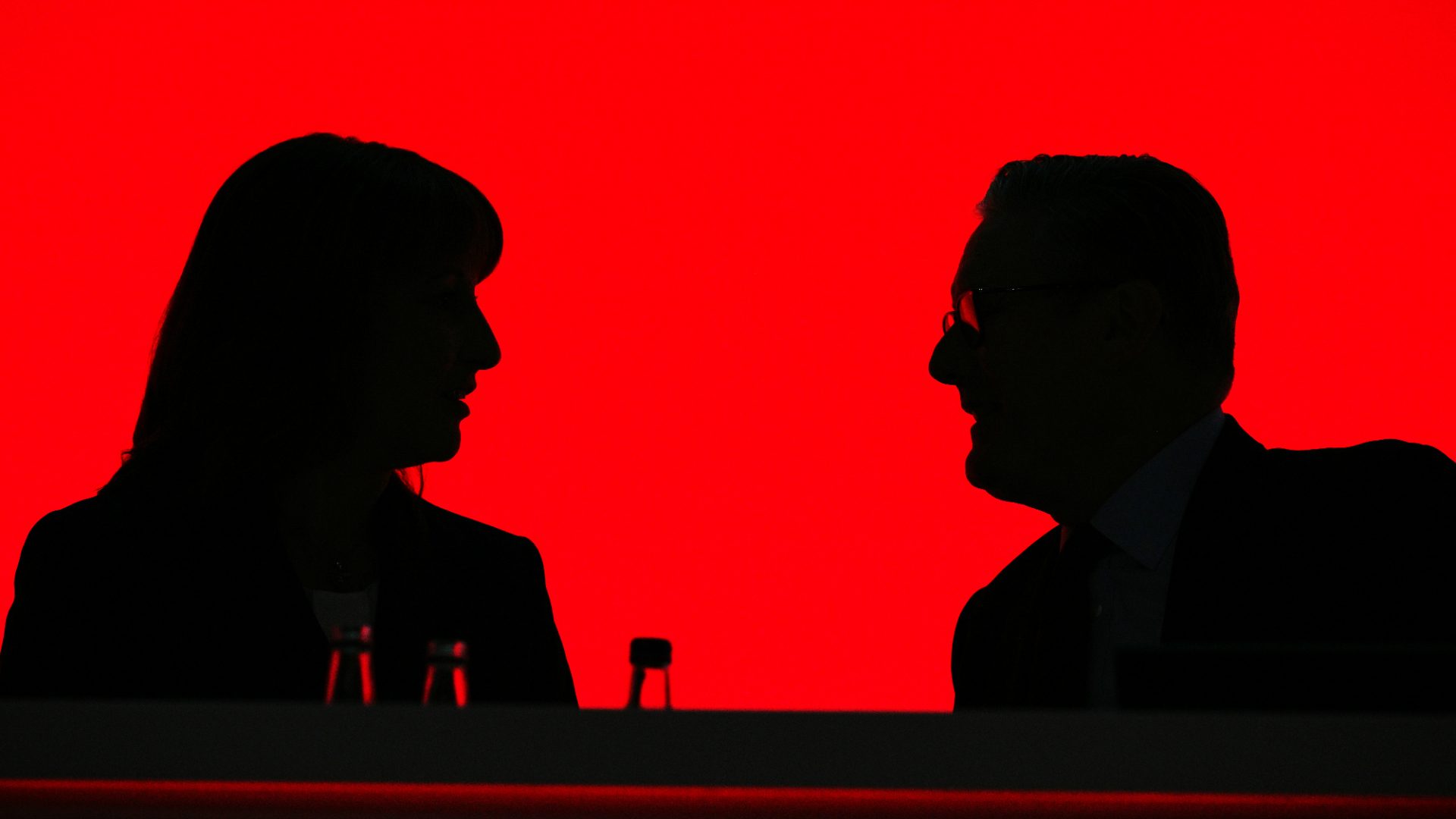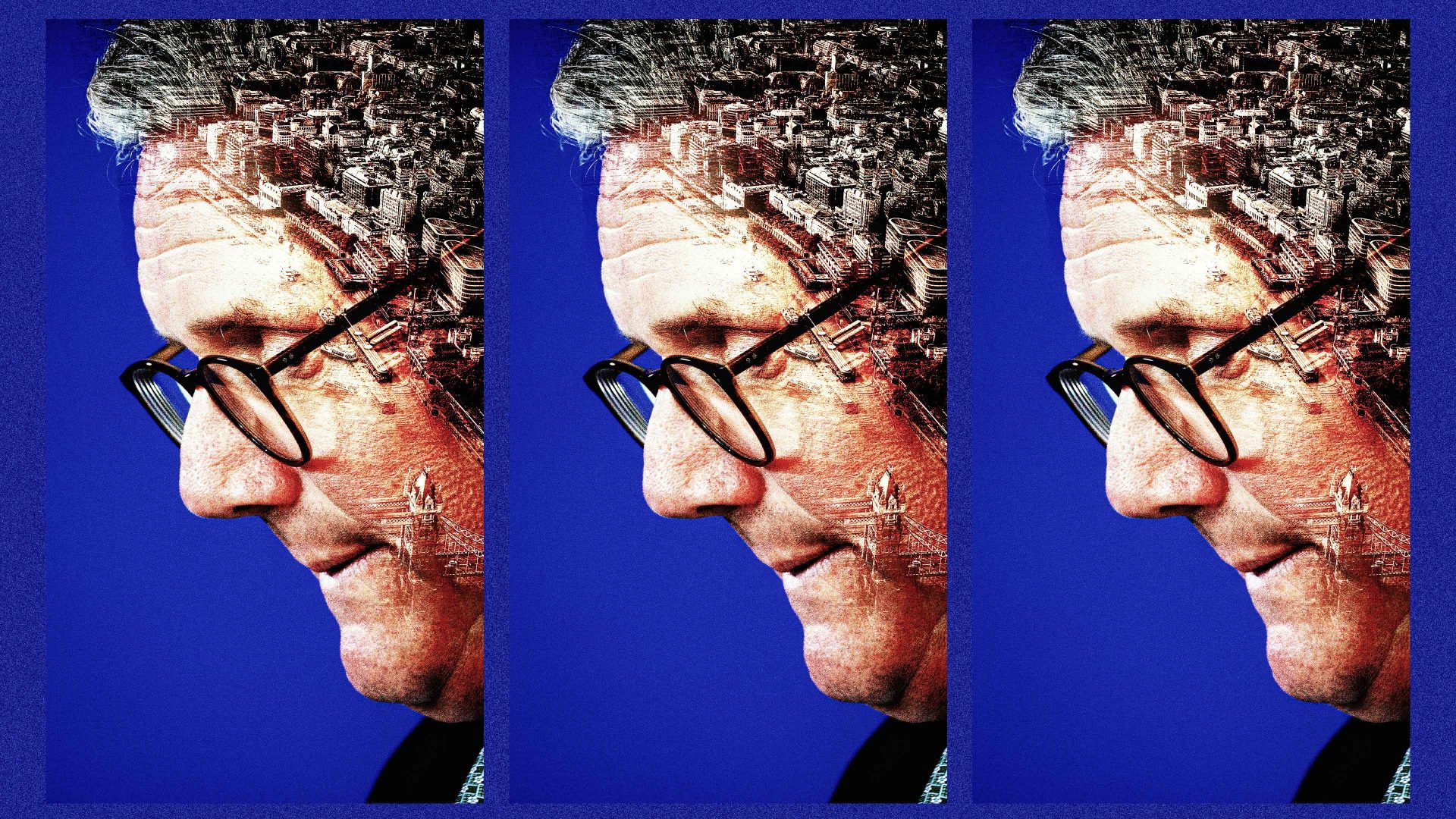In To Jerusalem and Back (1976), Saul Bellow wrote of the Jewish experience thus: “[Y]ou cannot take your right to live for granted. Others can; you cannot. This is not to say that everyone else is living pleasantly and well under a decent regime. No, it means only that the Jews, because they are Jews, have never been able to take the right to live as a natural right.”
These words came back to me last Thursday evening as I checked in with Jewish friends after the horrific attack on Heaton Park Hebrew Congregation Synagogue in Crumpsall, north Manchester. Most had been in shul to mark Yom Kippur – the holiest day in the Jewish calendar – with their electronic devices switched off as part of the religious observance.
A few had been taking their turn as security volunteers, wearing stab-proof vests, liaising with local police over the safety of their fellow congregants and the appropriate moment to end what amounted to a lockdown. Though the Heaton Park terrorist, Syrian-born Jihad Al-Shamie, had been shot dead by armed officers at the scene, there was always the risk of further attacks; six arrests quickly followed
Every person I spoke to was deeply shocked, as they learned of the deaths of Adrian Daulby, 53, and Melvin Cravitz, 66, and the three other congregants who were in hospital with serious injuries. They were heartbroken by the images of Rabbi Daniel Walker crossing the police cordon with blood on his robes.
But not one of the people I contacted was surprised. For two years, since the atrocities committed by Hamas on October 7, the air has been thick with calls on the streets and online for “jihad”, “globalised intifada” and anti-semitic rhetoric. “To be honest,” one Jewish woman told me, “I thought this might happen a lot sooner.”
All were struck by the fact that, instead of vigils for the victims, there were angry demonstrations on Thursday in London, Leicester, Leeds and Glasgow in protest at the interception of Greta Thunberg’s flotilla. Imagine, for a moment, how pointed that must have felt. Imagine that as your “lived experience” on a Thursday evening.
Pre-emptively and explicitly, many emphasised that opposition to the policies of the Israeli strategy in Gaza is not intrinsically anti-semitic. Indeed, many of the individuals in question had themselves previously raised profound concerns, in public and private, about the scale of the slaughter and Benjamin Netanyahu’s handling of the war.
That said, they know – how could they not? – that the latest wave of antisemitism in this and other countries is intimately connected to October 7, its aftermath and the very existence of Israel.
Since that day, the worst slaughter of Jews since the Holocaust, the spike in anti-semitism in the UK has been shockingly steep. In 2023, the Community Security Trust, the charity that monitors and oversees the safety of British Jews, recorded over 4,000 antisemitic incidents – the highest tally ever. And the pattern has persisted. Between January and June this year, there were 1,521 incidents of racism against Jews, the second-highest total recorded by the trust in the first half of a year.
What appals British Jews is that the protests against Israel began across the West, including in the UK, before the October 7 attacks were over. On that very day, Mothin Ali, now joint deputy leader of the Green Party, made a TikTok video describing the massacres – in which women were shot in the face after they had been gang-raped – as a “fightback” against the “settler colonial occupier”.
Also on October 7, the Palestine Solidarity Campaign coolly contacted the Metropolitan Police to communicate their intention to stage a march on October 14. Even as kibbutzniks and young festival goers bled out and 240 hostages were being taken to the dungeons of the Hamas tunnel system, British citizens were planning a protest rally against Israel’s retaliation (which had not yet started).
And now, two years on, I’m sure those protesters would say they were right and prescient and that Israel’s conduct in Gaza has more than justified their fears. What of that?
The British Jews I spoke to last week are all horrified by the civilian death toll in Gaza. No decent human being could fail to be. More than 66,000 Palestinians have been killed, according to the Hamas-run health ministry – and, once the rubble of the strip is cleared, the final, awful figure will surely be even higher.
What dismays Jews in the UK and elsewhere is that Hamas takes next to no blame for these fatalities and injuries – that the terrorist group’s refusal to allow civilians into its network of tunnels is a footnote (at best) in the media debate. While Hamas takes shelter, the people whose emancipation it claims to champion are left above ground.
One has to hand it to the late Yahya Sinwar, the mastermind of the October 7 attacks. Like a modern-day Clausewitz with the added urgency of the fanatical theocrat, he set the stage of the warzone perfectly: knowing that Israel’s retaliation would be overwhelming.
More to the point, Sinwar clearly intuited that the global media’s focus would narrow, as it always does, and that, very quickly, October 7 would be framed not as a historically bloody pogrom but as a pretext for genocide seized by the evil “Zionist entity”.
British Jews hope and expect that, after the conflict, the errors on the Israeli side will be fully accounted for. Certainly, Netanyahu will struggle to stay in office and out of jail (he faces charges involving bribery, fraud and breach of trust that long predate the conflict).
The International Criminal Court and the International Court of Justice are already pursuing allegations of genocide and war crimes. In Israel, the gold standard remains the Agranat Commission set up to investigate failures by the Israeli Defence Force before the Yom Kippur War of 1973.
But Jews are also dismayed by the almost total refusal to accept that October 7 itself was genocidal. The 1948 convention defines genocide as “acts committed with intent to destroy, in whole or in part, a national, ethnic, racial or religious group” (my italics). Please note: in law, genocide is not defined by absolute numbers or the distinct doctrine of proportionality, but by intent related to the destruction of a specific group.
The Hamas attack two years ago, in which Islamists sought only to kill and kidnap as many Jews as they could (and boasted to their parents by phone while they were doing so), easily clears that hurdle. Had communication with Hezbollah in the West Bank been better, Israel would have been caught in a deadly pincer movement. As it was, Hezbollah did not begin its bombardment until October 8.
Though there is plenty of anti-semitism on the right – more so in America than in the UK – it is for the liberal left that British Jews reserve their greatest disdain. The Gaza conflict is part of a multi-front battle between Israel and Iran’s proxies: Hamas, Hezbollah, the Houthis, Islamic Resistance in Iraq and the now-fallen Assad regime in Syria.
Suggested Reading


Killings in Manchester: has Britain ignored antisemitism?
But the liberal media, international institutions and NGOs simply do not perceive the suffering of Gaza as part of a regional war.
The only shadows they see flickering on the wall of the cave involve Israeli action. As one Jewish academic said to me: “It is as if there is only one element in the whole horror that counts, and that all the blame for it lies with Jews.”
Why did the BBC take so long to describe Hamas as “terrorists”? Why did more than 50 days pass before UN Women issued a statement unequivocally condemning the attacks?
Why, when a trustee of a Nottingham Islamic charity said last year that “the hour will not begin until the Muslims fight the Jews and the Muslims will kill them until a Jew hides behind a rock or a tree”, did the Charity Commission only respond with a warning? Why did activists who complained routinely about “dehumanisation” think it was okay to tear down posters of hostages?
As one Jewish friend put it to me wryly: “October 7 made the Left’s brain melt”. What he meant was that in the fiercely policed categories of modern social justice debate, Jews are now very firmly in the box marked “oppressors”. So the slaughter of 1,200 of them in a single day was, by definition, a category mistake.
It imperilled the inviolable distinction between the “powerful” and “powerless”. It momentarily oxygenated the idea that racism against Jews might be a very real thing indeed (since October 7, the “Diane Abbott doctrine” – that anti-semitism is a lower-level form of bigotry – has resumed its quiet orthodoxy).
Progressives are the Marie Kondos of the ideological spectrum: they insist upon tidiness. How can Jews be victims of racism but also have nuclear weapons? This makes no sense at all to people who like their politics simple, virtuous and loud.
So much of the media debate continues to focus on the propriety of the pro-Palestinian marches and of the proscription of Palestine Action. As I’ve said repeatedly, I’ve never been in favour of banning such protests and I think the criminalisation of PA is preposterous and anti-democratic.
In which context: I was struck that none of the people I spoke to on Thursday talked about banning marches or organisations. What they talked about was ignorance, historical illiteracy and political infantilism.
They talked about the lazy use of words like “colonial”, “apartheid” and “imperialist” to describe a state that was born in the postwar furnace of the Middle East after the extermination of six million Jews and has been surrounded since its foundation by nations and terror groups that seek its annihilation. That tends to focus the mind.
They talked about the shouting of the slogan “from the river to the sea!” by activists who cannot name the river or the sea it refers to; and who seem to have forgotten that the standard International Holocaust Remembrance Alliance’s definition of anti-semitism – resisted for so long by Jeremy Corbyn – includes “denying the Jewish people their right to self-determination”.
Of course, British Jews do not doubt that the marchers feel strongly about the bloodshed in Gaza. But why only there? Just conceivably, could there be some other motivating factor that makes protestors turn out week after week; one that is absent when they consider, say, the suffering of the Ukrainians, of the Rohingya people, of the Uyghurs, of Nigerian Christians?
As the late Rabbi Lord Jonathan Sacks – a great mentor to me – said in 2019: “Anti-semitism is a virus that mutates, so that new antisemites can deny they are antisemites at all, because their hate is different from the old. In the Middle Ages Jews were hated for their religion. In the nineteenth and early twentieth century they were hated for their race. Today they are hated for their nation state, Israel.”
Jews used to be vilified as “rootless cosmopolitans”. Now they are vilified because they have, with astonishing speed, created a democratic, industrialised homeland. The Jews will never be forgiven for the success of Israel.
At the time of writing, there are tentative signs of progress towards hostage release and a ceasefire. One can only hope that this process blossoms. There is so much work of reconstruction ahead.
As for British Jews, the overall mood I detected last week and over the weekend is one of grieving realism. They know that their numbers are insufficient (287,000 compared to 4 million Muslims) to enter any electoral calculations.
They do not believe Keir Starmer and his ecumenical bromides, especially since his performative recognition of Palestinian statehood. After 2,000 years of persecution, they know political priorities when they see them.
So: they fully expect some token measures, acts of remembrance, parliamentary resolutions, perhaps even a singalong of “Don’t Look Back in Anger” – and then the resumption of business as usual. As one put it: “We will soon be seen as the problem again.”
Last week’s horror showed precisely why Israel exists and must continue to exist. As Golda Meir said: “We have a secret weapon – we have nowhere else to go.”
And now, it pains to say, some of my friends are thinking aloud about making aliyah: of leaving these shores and finding a new home in Israel. Why remain in a country where they feel despised by the liberal elite, blamed for a bloody war started by theocratic fascists, and unsafe in their own places of worship?
To this I have no answer but personal solidarity – a flimsy reed indeed. I hope with all my heart that they stay but I can see why they might not. It is extraordinary to report that, in 2025, the Jewish suitcase is back in the hall, waiting for the moment of sudden flight. I feel nothing but shame.




